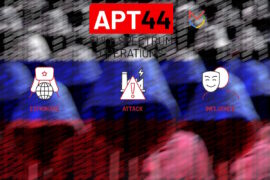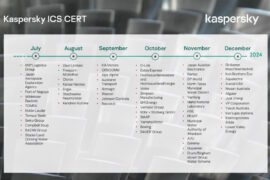GE and Thales to secure power plant operators

GE and Thales to provide new solutions to secure power plant operators, announcement follows joint report focused on energy sector security.
Electrical systems manufacturer Thales Group and GE Steam Power recently announced a new collaboration to deliver a suite of cybersecurity solutions to power plant operators. On January 27, the two companies signed an agreement solidifying their partnership at the International Cybersecurity Forum in France.
According to Thales, the new partnership, “brings together Thales’ cyber knowledge and GE’s expertise in the power generation industry to help protect customers from cyber risks by providing threat intelligence, joint training and a combined portfolio of cyber solutions.”
As part of the joint solution to secure power plant operators , GE has already installed equipment at the National Digital Exploitation Centre, a technology hub in the South Wales Valleys. NDEC was created by Thales and the Welsh government for cyber and digital development and education. The facility carries out cyber-attack demonstrations and response scenarios using Thales’s Cyber Range and GE hardware.
“It has become vital for power generation operators to get specific and regular training to understand what they are fighting and how to better protect their systems,” GE and Thales say in releases announcing their new partnership. “Through this partnership, Thales and GE are joining forces to perform joint training for customers that operate individual or fleets of power plants.”
The recent partnership announcement comes a few months after Thales and GE published a joint cyber threat intelligence report that includes an analysis of cyber threats in the energy sector. According to the Cyberthreat Handbook, the power generation industry is one of the most at risk. The report details major hacking groups and includes a scoring methodology and individual ratings cards for each group of attackers.
“The landscape of cyber threats to the power generation industry follows the evolution of cyber threats in the broadest sense,” GE and Thales say in their releases. “It evolves, becomes more complex and requires permanent and specialized monitoring.”
The handbook includes profile of approximately 60 major groups of cyber attackers based on analysis of 490 attack campaigns. According to the report, up to 10 percent of cyber attacks on operations like power plants are led by highly effective threat actors.
Of the major groups identified, 49 percent are state-sponsored hackers focused on stealing sensitive data from targets of geopolitical interest. Twenty-six percent are ideologically motivated actors. Another 20 percent are cybercriminals motivated by financial gain. Cyber terrorists account for 5 percent of the 60 groups analyzed.
“The growing intertwining of companies’ information technology (IT) and operations technology (OT) systems allows attackers to create bridges between any machine and the core infrastructure,” Thales and GE say. “While vulnerabilities in IT environments are mostly understood and managed, OT vulnerabilities still lack attention.”
According to the report, industrial control systems (ICS) and supervisory control and data acquisition systems (SCADA) are being increasingly targeted by state-sponsored groups. These cyber attacks are designed to exploit these systems in the event of international conflicts.
“As cyberthreats proliferate and evolve, cybersecurity clearly has a major role to play, particularly for critical infrastructure providers,” Marc Darmon, Thales’ executive vice president for secure communications and information systems, said in an October 2019 press release. “It is our duty to analyse, understand and describe the techniques employed by cyberattackers so that our customers and all other businesses and organisations are better prepared to detect and anticipate future attacks.”










